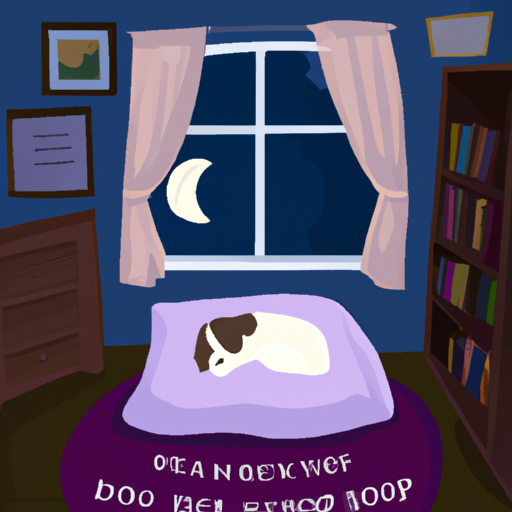As a caregiver, you may find it challenging to help your beloved pet get the rest they need. This comprehensive guide will provide you with the necessary tools and techniques to ensure your dog has a peaceful night’s sleep.
1. Understand Your Dog’s Sleep Cycle
Just like humans, dogs have different sleep cycles. Typically, they require about 12 to 14 hours of sleep per day, although this can vary depending on their age, breed, and health.
| Age/Breed | Average Sleep Duration |
|---|---|
| Puppies | 18-20 hours |
| Adult Dogs | 12-14 hours |
| Older Dogs | up to 18 hours |
| Large Breeds | 14-18 hours |
| Small Breeds | 12-14 hours |
2. Create a Comfortable Sleeping Environment
A comfortable sleeping environment is essential for your dog’s good night sleep.
- Make sure their bed is soft and comfortable.
- The room should be dark and quiet.
- The temperature should not be too hot or too cold.
3. Establish a Regular Sleep Schedule
Dogs thrive on routine, so it helps to establish a consistent sleep schedule. If you feed and walk your dog at the same time every day, they are more likely to sleep at the same time each night.
4. Exercise Your Dog Regularly
Regular exercise is essential for a good night’s sleep. A tired dog is a sleepy dog.
- Take your dog on daily walks.
- Play games like fetch or tug-of-war.
- Let them socialize with other dogs at a dog park.
5. Monitor Your Dog’s Diet
What your dog eats can affect their sleep.
- Avoid feeding them late at night.
- Avoid giving them food or treats that contain caffeine or other stimulants.
- Ensure they are getting a balanced diet.
6. Limit Distractions at Night
Limiting distractions can help your dog sleep better.
- Turn off the TV and other electronic devices.
- Keep your house quiet.
- Limit your dog’s access to toys or other distractions.
7. Consult a Vet if Necessary
If your dog is having persistent sleep problems, it might be a good idea to consult with a vet. They can check for any underlying health issues that might be affecting your dog’s sleep.
8. FAQs
Q: How many hours should my dog sleep?
A: Most adult dogs need about 12 to 14 hours of sleep per day. However, this can vary based on their age, breed, and health.
Q: What can I do if my dog won’t sleep?
A: Try establishing a regular sleep schedule, creating a comfortable sleeping environment, and providing plenty of exercise. If these strategies don’t work, consider consulting with a vet.
Q: Can my dog’s diet affect their sleep?
A: Yes. Feeding your dog late at night or giving them food or treats that contain caffeine or other stimulants can interfere with their sleep.
Remember, your dog’s sleep health is crucial to their overall health and wellbeing. While it may take some trial and error, finding the right sleep routine can lead to a happier, healthier pet.



